- Home
- Robert Graves
The Golden Fleece Page 11
The Golden Fleece Read online
Page 11
Hercules prolonged his Labours by a number of voluntary ones, many of them more extraordinary than those imposed by Eurystheus. He did this to show his contempt for his master. That Eurystheus had any power at all over Hercules may seem surprising; but this is the story. After his victory over the Minyans of Orchomenos, Hercules (then known as Alcaeus) had been rewarded by the King of Thebes with the hand of his eldest daughter Megara, but four years later in one of his drunken fits killed his children by her, and a couple of his nephews at the same time, mistaking them for snakes or lizards. Their ghosts began to haunt him. The customary rites of purification were ineffective because the ghosts of a man’s own children cannot be easily deceived, and he therefore went to Delphi to ask Apollo’s advice, complaining of sudden tweaks at his legs and tunic and of childish voices ringing in his head. The Chief Priest had not forgotten what hostility Hercules had shown to the new religion, and ordered him to become a servant for a Great Year to King Eurystheus, whose father Sthenelus had been murdered by Hyllus, a son of Hercules. He was to do everything, within reason or without, that Eurystheus ordered; and was promised that at the end of the year these tweaks and voices would entirely cease. Meanwhile the sacred physicians prescribed palliatives. A Great Year is nearly eight years long, and by the end of it sun, moon, and planets are all back again where they were when it began.
Eurystheus was pleased at first with this arrangement, which flattered his power and gave him hope of avenging his father’s murder on Hercules, who had instigated it; but he soon became aware of the disadvantages of having so unusual a servant. Hercules when he had successfully accomplished his first task, that of strangling the Nemean Lion, frightened Eurystheus nearly to death by playfully tossing the corpse into his lap. Eurystheus refused him further audience and built himself a brass refuge-tomb under his throne, into which he could slip if Hercules ever broke into the palace again, pulling a trap-door down over his head and feigning death. Then he thought out a series of almost impossible tasks, which his herald Talthybius would order Hercules to perform, and which were designed to keep him out of Mycenae for as long as possible. Hercules used to greet Talthybius with: ‘Holloa, Dung-man, what is the latest filth that you bring from your master?’ But his respect for heralds kept him from ever beating him or breaking his teeth.
Jason had once been warned by his tutor Cheiron that it was always wiser to drink with Hercules than to quarrel with him. He therefore answered his banter mildly. He said: ‘Indeed? Can it really be that you have not yet heard what all Greece is buzzing with? No doubt you have been abroad or in some inaccessible district of Greece for the last few months. But, by my Leopard’s spots, I swear that these carpenters and painters have been wonderfully discreet: I wonder what scruples have kept them from telling you what vessel this is that they have been working at, and to what purpose it is dedicated.’
Hercules growled: ‘Ugh! They did begin to tell me some foolish story about a pack of young Minyans who boast that they are sailing her to Scythia – or was it India? – in search of treasure guarded by gryphons. To be honest with you, I ceased to listen when I heard that it was a Minyan enterprise. I have never felt the least interest in what the Minyans may do since I gave them such a beating at Thebes some years ago.’
Jason kept his temper. ‘I fear,’ he said, ‘most noble Hercules, that you did not see my fellow-Minyans at their best on that occasion.’
‘I fear not, Boy,’ answered Hercules. ‘Indeed, they made a pitiable showing. I believe that my Hylas here could have routed them with his little sling and dagger. Could you not, my sweet?’
Hylas blushed, and Jason said: ‘Pray excuse me if I admire the looks of your young companion, Hercules. I feel bound to declare him the handsomest child I ever saw.’
Hercules drew Hylas to him and gave him three or four smacking kisses on the neck and face. ‘He is all the world to me,’ he cried, ‘and as brave a boy as walks. I intend in a year or two, now that he has attained to puberty, to initiate him into the Lion fraternity. There are not many of us, but Holy Serpents, we make our presence felt in the world!’ Hercules had originally been a Bull man, but quitted the fraternity when it was announced that Zeus had taken it over from the Mother Goddess. ‘If a Ram can turn into a Bull,’ he said, ‘a Bull can become a Lion’; then, to propitiate the Goddess for the injury he had done to her High Priestess at Olympia, and also for the death of her Nemean Lion, which he had strangled, he went to visit Queen Circe of Aeaea, who managed affairs of this sort, and enrolled himself in the Lion fraternity. She ordered him to bite off one of his own fingers to placate the ghost of the lion, and this he fearlessly did and, what is more, instituted the Nemean Games in its honour.
Jason was pleased to have found a soft side to the rugged nature of Hercules. ‘I am sure that your Hylas will prove worthy of you,’ he said. ‘Already he carries his head like a king. How does he come to be in your service? He is not one of your innumerable bastards, is he?’
Hercules sighed gustily. ‘The poor child is an orphan. I killed his father myself. This was what happened. I was wandering through western Thessaly on some expedition or other, and one day I happened to feel hungry. I came across a Dryopian farmer ploughing a fallow field in a sheltered valley, and uttering, for luck, the usual obscene imprecations. I saluted him with: “My lucky ploughman, I am so hungry that I could eat an ox.” He answered, with a smile, but continuing to curse, that I should at any rate not eat his ox until the field had been ploughed and harrowed too. “Holy Serpents,” I cried, losing patience, “I will, if I like.” “Hold hard,” said he. “I am Theiodamas the Dryopian. I must ask you not to speak to me in that peremptory way.” I answered: “To the crows with your ‘peremptory’. I am Hercules of Tiryns and I always say, do, and get, just whatever I please. At Delphi the other day I told the Pythoness exactly what I have just told you; but she refused to believe me. I pulled the sacred tripod from under her and carried it out of the shrine. ‘Now,’ said I, ‘if needs must I will have an oracle of my own.’ Ho, ho! That soon brought her to her senses.” But Theiodamas either had never heard of me or else could not believe that I was I. He threatened me with his ox-goad so I gave him a friendly tap with my club and cracked his skull like an egg-shell. Alas, I never meant to kill him. I never know my strength, that is my curse. The same thing happened to me when I was a boy learning to play the lyre, and my music-teacher, a pompous fool named Linus, rapped my knuckles and told me that my fingering was incorrect. I gave him a playful whack with the lyre and dashed out his brains. A pure accident, that I swear! I pleaded self-defence and the affair blew over, but I have never touched a lyre since.
‘Well, as I was saying, I was strangely hungry that day. I killed the ox, skinned it, started a fire with the wooden plough and the goad, and fed it with a few dry logs pulled from the side of a barn near by. While my meat was roasting, I piously dedicated the corpse of Theiodamas to the Corn Mother and scattered pieces of it along the furrows to improve the crop; which was a cunning way of escaping the attentions of his ghost, I considered. I was about to sit down to dinner when I heard a little whining noise from the side of the barn – whee, whee, wow, whee! There sat a pretty child of two years old who had been sleeping on his father’s coat in the warm sun. The crunching of my jaws must have awakened him. Yes, you have guessed right: it was Hylas. I took a fancy to him at once. I gave him a marrow-bone to suck and toasted him a tit-bit of ox-tongue at the fire. He and I soon grew so friendly that I carried him off in my wallet. He has come with me on all my adventures ever since. They say that his mother died of grief at her double loss. If so, she was a silly woman: Theiodamas was an obstinate mule, and she should have known better than to grudge Hylas an education that most mothers would have paid anything to provide for their sons. Never you mind, my darling Hylas; Hercules is your father and mother now. Hercules will always take care of you.’
Jason asked: ‘May I enquire what you are doing in Phthiotis, most noble Hercules? Are you pe
rhaps engaged on another of your world-famous Labours?’
‘No, no. I had just completed the sixth of them – or was it the seventh? – no matter – when it occurred to me to take a holiday in Thessaly, show Hylas his paternal lands, and pay a visit to my old friend Cheiron the Centaur on the way. One of these days I will put Hylas on the Dryopian throne if he likes. Eh, darling?’ He caught up Hylas again and began hugging him. When Hylas yelped with pain, Hercules immediately desisted. ‘There, you see,’ he said. ‘I never know my own strength. I cracked a couple of his ribs a few months ago and he had to lie up. Truly, I meant no harm; I have a very warm nature, you know.’
‘Since you are, then, somewhat at leisure,’ said Jason, ‘we Minyans, who are by no means so degenerate as you judge us to be, will esteem it the very greatest honour if you will accompany us to Colchis as captain of this ship. For we intend there to recover the Golden Fleece of Zeus.’
Hercules considered a moment. ‘Colchis, Colchis, did you say? I remember the place. You sail to Troy first, and have your usual disagreement with the sulky Trojans, and break a few heads. Then you keep along the southern shore of the Black Sea, trudging up and down hills for a few hundred miles – some of the tribes you meet have the most peculiar manners – until you reach the country of the Amazons, to the north of Armenia. I went there not so long ago, on a Labour, to fetch back Queen Hippolyte’s girdle: it was not at all an easy task, for the Amazons fight like wild cats, and I was obliged to humour them. However, I got what I came to get. After Amazonia, another hundred miles or so, and at last you see the Caucasian mountains on the horizon and the Black Sea ends. That is Colchis. I remember a wide, slimy river and a tangle of wild vines in the forests, and tree-frogs of the colour of emeralds, and some kinky-headed natives at the port, and a number of odd-looking Indian trees. I started up the river in a canoe for I had business at the shrine of Prometheus, some distance upstream but I was forced to turn back again as usual because of the children’s voices in my head. I should like to try again. I should like to visit the land of perpetual snow at the top of Caucasus, where the garliceating Soanians slide down the snow-chutes on skin toboggans faster than the diving swallow, or climb up slippery ice pinnacles with their spiked shoes of raw hide. I have heard that the snow falls in flat cakes like little knives not in stars and flowers as with us; I wonder is that so? Very well, I will come to Colchis with you. Our Thessalian holiday can wait – eh, Hylas?’
‘How generous you are, Prince Hercules,’ cried Jason, wishing him dead and securely buried under a towering barrow of earth and stone.
Hercules silenced him. ‘Listen, Boy, I am very careful in my choice of messmates. If I consent to lead the expedition, I insist on deciding who goes with me and who stays behind.’
‘That will save me a great deal of embarrassment,’ said Jason, ‘so long as you consent to include me among those who go.’
‘I cannot say that I like the look of you,’ said Hercules with severity. ‘You call yourself a Minyan, you swear by the Leopard’s spots like a Magnesian, and you wear your hair in a mane as though you were a Centaur. You remind me of the Chimaera, the lion-headed she-goat of Caria with the snake’s tail. I have never met her myself. I do not expect to do so either. I believe that half the accounts one hears of her are fraudulent. Who are you?’
Jason gave a brief account of himself When Hercules heard that he was one of Cheiron’s pupils he cried, ‘Good, good!’ and treated him with greater affability. ‘Cheiron is the last of my old friends,’ he said ‘He and his wise mother Philara once doctored a nasty wound of mine. I will never forget it. I had feared to lose an arm.’
They spoke no more about the expedition, but drank together jovially and soon the other Minyans came bursting into the hut and greeted Hercules with wild cheers. He roared at them to go away, saying that he was busy with his cups, and slammed the door in their faces so hard that part of the roof fell in. They slouched back in chagrin to Iolcos.
Jason flattered Hercules and plied him with wine, a fresh jar of which he fetched from a farmhouse near by, and at last incautiously asked leave to imprint a chaste kiss on the cheek of Hylas.
Hercules bellowed with indignant laughter and waggled his great horny forefinger at Jason. ‘You had best do nothing of the sort,’ he said. ‘The boy is mine, not yours!’ An iron crow-bar lay among the carpenters tools in a corner of the hut. Hercules picked it up and began bending it into a collar for Jason’s neck, but Hylas pleaded for Jason’s forgiveness; so, instead, Hercules twisted the crow-bar into a coiled snake, with head raised ready to strike, and set it on the floor facing Jason, hissing himself in a threatening way. His face had grown fiery red with his exertions, for he was already in his fiftieth year and his strength was declining somewhat; he looked terrible.
Chapter Nine
The Choosing of the Argonauts
The next morning Hercules slept off his drink. He awoke about noon in an irritable mood; but Hylas was waiting for him with a huge basin of wine and a beef-steak or two which Jason had prepared, and presently he consented to be ferried over to Port Iolcos in a boat. They were half-way across when the two racing-galleys came threshing past; and their wash set the boat rocking. Hercules shouted out a curse, seized and strung his bow, and leaping up, stamped furiously with his foot. He would have sent a volley of arrows after the galleys, but that he had stamped a great hole in the bottom of the boat, which instantly filled and sank. Hylas could swim like a fish and struck out for the Iolcan shore, which he soon reached, but Jason bitterly regretted that he had not learned from his previous adventure to take swimming as well as rowing lessons. He managed to keep his mouth above water with the help of an oar and yelled to Hercules for help. Then he knew no more for a long time. Hercules, not wishing to be dragged down by Jason’s frantic struggles, had taken the precaution of stunning him with his fist. It was fortunate that Jason’s thick skull was protected by the coils of his braided hair and a leather helmet.
When eventually he came to, with a violent headache, he heard a heavy tread near him, and half-opening his eyes saw Hercules gazing down at him in a puzzled manner. ‘You are not dead, are you?’ Hercules asked.
Jason looked painfully about him and saw that he was in the hall of Pelias again, not in the caverns of the Underworld as he had supposed. ‘No, I am still alive,’ he answered. ‘What hit me?’
Hylas tittered, Hercules chuckled, and soon the whole hall rang with a tremendous roar of laughter. ‘What hit him? Ha! Ha! What hit him?’ For Hercules had just been giving a display of strength, in the course of which he had challenged Augeas, the young King of Elis with the famous stable of horses, to a wrestling match, and then catching him by both knees had tossed him up to the roof; his belt caught on the peg of a cross-beam where he hung like a flitch of dried goat-meat. Hercules had also left his mark on the place, as he always did, by dealing a right-handed punch at a great copper cauldron, so that the marks of his knuckles showed in a dint four inches deep. ‘What hit him? Ha! Ha! What hit him?’ King Augeas of Elis echoed from the rafters, congratulating himself on being alive and uninjured. He was in no haste to descend.
The next evening after supper Jason, still weak but able to stagger about with the help of a stick, asked Hercules whether he had yet chosen the crew for the Argo. The business had escaped Hercules’s memory, but he attended to it without delay. He clapped his hands for silence, and even King Pelias, who was giving some detailed instructions to his cup-bearer, thought it wise to obey. Hercules, wherever he went, seemed to be king.
‘First of all,’ he began in his booming voice, ‘I order all those guests of King Pelias who wish to sail with me to Colchis in the what’s-her-name to range themselves on my right hand; and those who do not wish to sail to range themselves on my left hand.’
After a moment of hesitation, fifty men stepped to the right, a few of them Minyans; and thirty to the left, most of them Minyans.
‘Next,’ said Hercules, ‘I order you thirty
cowards who hang back from the voyage even when you know that Hercules is sailing, to lay down your weapons and divest yourselves of all your clothes. You are to leave them lying there as a grateful return to King Pelias for the hospitality that he has shown you, and to go home at once without so much as a pair of leather breeches among you.’
There was a roar of laughter from the fifty and a cry of indignation from the thirty, who brandished their weapons and refused to do what Hercules ordered. But when he reached for his brass-bound club and spat on his palms the thirty thought better of their defiance and began laying down their swords, spears, and javelins, and undoing their buttons. The daughters and women guests of King Pelias blushed and went out by a side door; the King himself was alarmed, fearing that a dozen wars might grow out of the incident. But Hercules would not relent and the young men went stark naked out of the hall into the cold night, leaving their clothes and weapons and jewels behind them. The fifty bolder men hooted after them.
Then Hercules said genially to Jason: ‘I am an unlucky man, I always have been so. They say that I am no judge of men, and perhaps they are right. Let my Hylas choose the crew for me. He knows better than I the sort of man that is needed; he is a clever youngster, is Hylas. But first let all the volunteers who are of Minyan blood stand aside; for the heralds have promised them the first places in the ship.’ The adventurers who were not Minyans resented that the choice should be made by a mere boy, but none dared to oppose the wishes of Hercules.

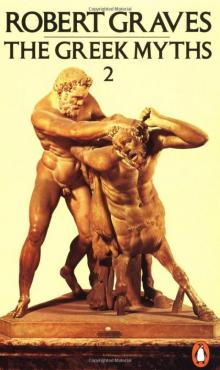 The Greek Myths, Volume2
The Greek Myths, Volume2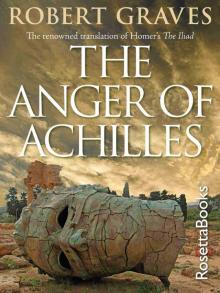 The Anger of Achilles: Homer's Iliad
The Anger of Achilles: Homer's Iliad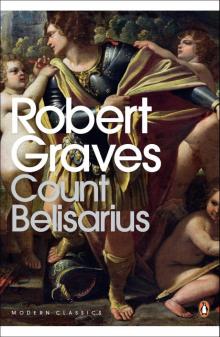 Count Belisarius
Count Belisarius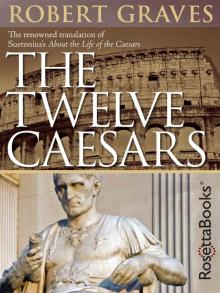 The Twelve Caesars
The Twelve Caesars Complete Poems 3 (Robert Graves Programme)
Complete Poems 3 (Robert Graves Programme) Homer's Daughter
Homer's Daughter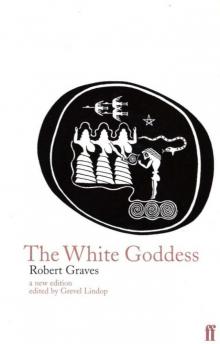 The White Goddess
The White Goddess Goodbye to All That
Goodbye to All That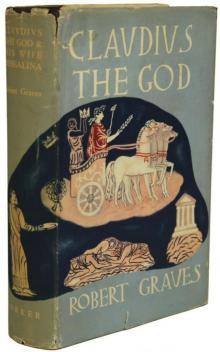 Claudius the God and His Wife Messalina
Claudius the God and His Wife Messalina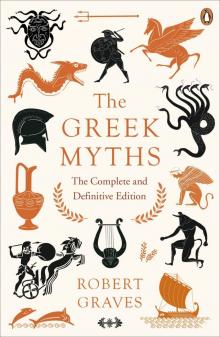 The Greek Myths
The Greek Myths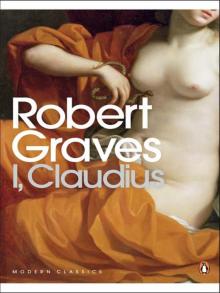 I, Claudius
I, Claudius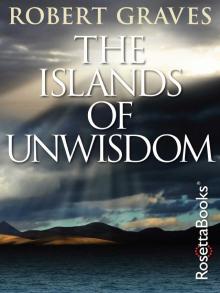 The Islands of Unwisdom
The Islands of Unwisdom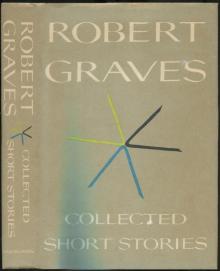 Complete Short Stories
Complete Short Stories The Golden Fleece
The Golden Fleece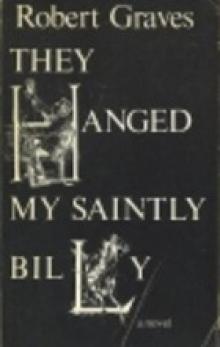 They Hanged My Saintly Billy
They Hanged My Saintly Billy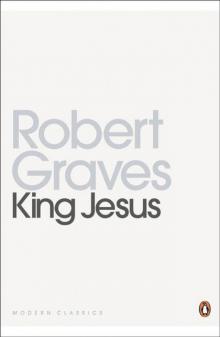 King Jesus
King Jesus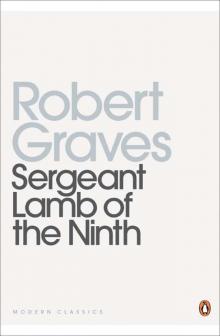 Sergeant Lamb's America
Sergeant Lamb's America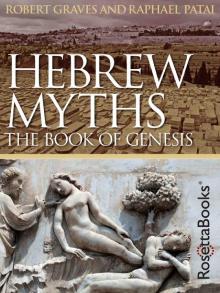 Hebrew Myths: The Book of Genesis
Hebrew Myths: The Book of Genesis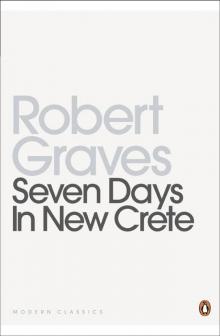 Seven Days in New Crete
Seven Days in New Crete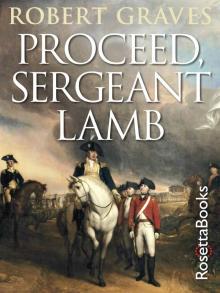 Proceed, Sergeant Lamb
Proceed, Sergeant Lamb Claudius the God
Claudius the God Wife to Mr. Milton
Wife to Mr. Milton The Complete Poems
The Complete Poems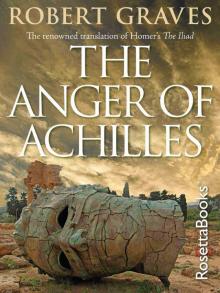 The Anger of Achilles
The Anger of Achilles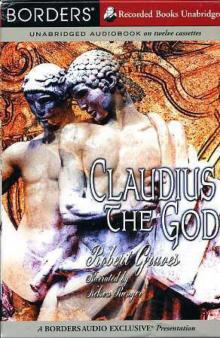 Claudius the God c-2
Claudius the God c-2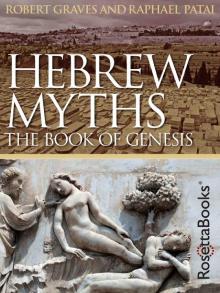 Hebrew Myths
Hebrew Myths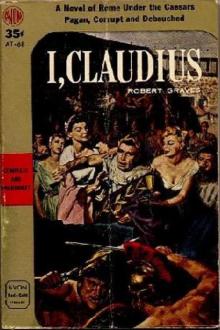 I, Claudius c-1
I, Claudius c-1 The Greek Myths, Volume 1
The Greek Myths, Volume 1